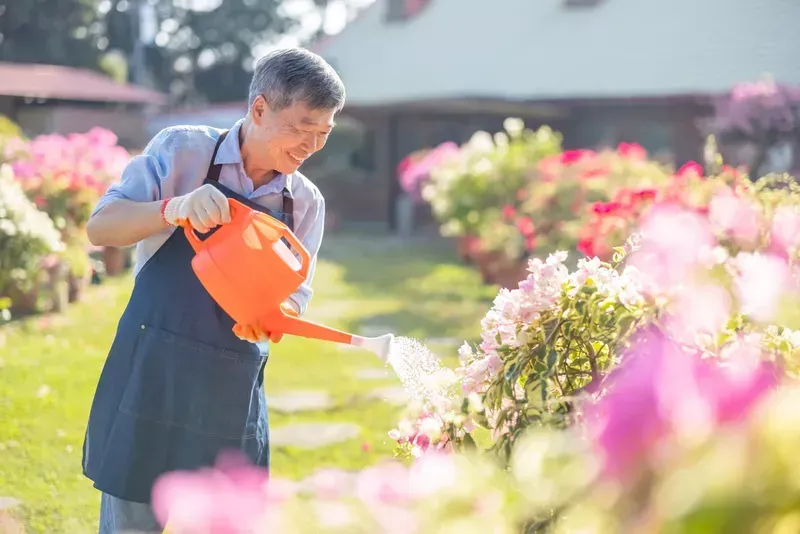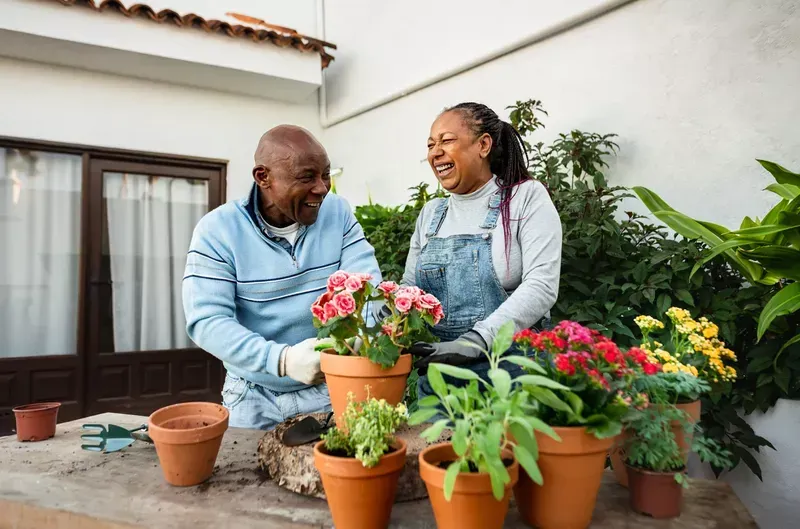BLOG
The Benefits of Gardening as Therapy for Brain Injury Survivors
Gardening offers therapeutic benefits for brain injury survivors, especially seniors. Horticultural activities can enhance physical, cognitive, and emotional well-being. Structured gardening programs provide a holistic approach to rehabilitation. Incorporating gardening into recovery plans can significantly improve quality of life.
Brain injuries often lead to challenges that affect daily life. Seniors may experience difficulties with mobility, memory, and emotional regulation. Traditional therapies address these issues, but integrating alternative methods can be beneficial. Gardening is a complementary therapy that addresses multiple aspects of recovery.
Physical Rehabilitation through Gardening
Gardening involves various physical tasks that promote movement and strength. Activities like digging, planting, and watering require coordination and dexterity. These tasks help improve motor skills and increase physical endurance. Regular participation can lead to enhanced mobility and reduced physical limitations.
Maintaining physical activity is crucial for brain injury survivors. Gardening is a low-impact exercise option suitable for seniors. It encourages gentle stretching and muscle engagement without overexertion, which can help reduce muscle stiffness and improve overall physical health.

Additionally, exposure to fresh air and sunlight during gardening can boost vitamin D levels. Adequate vitamin D is essential for bone health and immune function. Spending time outdoors also promotes better sleep patterns and mood enhancement. These factors contribute to a holistic improvement in physical well-being.
Incorporating gardening into rehabilitation programs offers a purposeful way to stay active. It provides a sense of accomplishment as individuals see the tangible results of their efforts. This motivation can encourage continued participation and adherence to physical therapy goals. Overall, gardening serves as an effective tool for physical rehabilitation.
Cognitive Benefits of Horticultural Therapy for Brain Injury Survivors
Engaging in gardening tasks stimulates cognitive functions. Planning a garden layout requires problem-solving and organizational skills. Remembering plant care routines enhances memory retention. These activities can improve attention span and cognitive processing speed.
Cognitive rehabilitation is a key component of recovery for brain injury survivors. Gardening offers real-life applications of cognitive skills in a meaningful context. This hands-on approach can be more engaging than traditional cognitive exercises. It allows individuals to practice and develop skills in a supportive environment.
Research supports the cognitive benefits of horticultural therapy. Studies have shown participants' improvements in memory, attention, and executive function. Gardening's sensory experiences, such as touching the soil and smelling flowers, also stimulate neural pathways. This sensory engagement can aid in cognitive rehabilitation efforts.
Incorporating gardening into daily routines provides ongoing cognitive challenges. Individuals continuously engage their minds as they plan, execute, and adapt their gardening tasks. This sustained mental activity can contribute to long-term cognitive health and resilience. Thus, gardening serves as a valuable component of cognitive rehabilitation.
Gardening as a Long-Term Wellness Strategy for Brain Injury Survivors
Gardening benefits brain injury survivors long after their initial recovery. Its ongoing nature promotes consistency and routine, which encourages physical and mental engagement. Such habits are key to sustaining long-term wellness.
Gardening fosters a lifelong connection with nature. Spending time outdoors reduces stress and improves overall health. This connection offers brain injury survivors a sustainable way to enhance their lives. Regular exposure to nature is proven to lower cortisol levels and boost mood.
Seniors who garden regularly report feeling more fulfilled. The act of caring for plants fosters a sense of purpose. Gardening also encourages a mindset of growth and resilience. This positivity can be transformative for brain injury survivors.
Maintaining a garden also offers practical benefits. Growing herbs or vegetables can supplement diets with fresh produce, and harvesting flowers brings beauty and joy to living spaces. These tangible rewards reinforce the therapeutic value of gardening.
Emotional and Psychological Healing through Gardening
Gardening has a profound impact on emotional well-being. Nurturing plants can foster a sense of purpose and responsibility. Watching plants grow and thrive provides a sense of accomplishment. These experiences can boost self-esteem and reduce feelings of depression.
Emotional challenges are common during recovery for brain injury survivors. Gardening offers a therapeutic outlet for expressing emotions. The calming nature of the garden environment can reduce stress and anxiety levels. This peaceful setting allows individuals to reflect and find solace.

Social interaction is another emotional benefit of gardening. Participating in group gardening activities fosters a sense of community, and sharing experiences with others can alleviate feelings of isolation. These social connections are vital for emotional healing and support.
Moreover, the rhythmic and repetitive nature of gardening tasks can be meditative. This aspect promotes mindfulness and present-moment awareness, which has been linked to reduced symptoms of anxiety and depression. Therefore, gardening can serve as a natural form of emotional therapy.
Social Integration and Community Building
Gardening programs often involve group participation. Working together on gardening projects encourages teamwork and communication. These interactions can enhance social skills and build relationships. For brain injury survivors, this social engagement is crucial for reintegration.
Community gardens provide a shared space for individuals to connect. Participating in these gardens fosters a sense of belonging. Sharing the fruits of labor, such as vegetables or flowers, can strengthen community ties. These communal activities combat social isolation and promote inclusion.
In assisted living settings, gardening can bridge gaps between residents. Collaborative gardening projects encourage interaction among diverse groups. This inclusivity enhances the social fabric of the community. It also provides opportunities for peer support and shared learning.
Furthermore, intergenerational gardening programs can connect seniors with younger generations. These programs facilitate the exchange of knowledge and experiences, enriching the lives of all participants and promoting understanding and empathy across age groups.
Designing Therapeutic Gardens for Brain Injury Survivors
Creating a therapeutic garden requires thoughtful design. Accessibility is paramount; pathways should accommodate mobility aids. Raised garden beds can reduce physical strain for seniors. Incorporating sensory elements, like fragrant plants, enhances the therapeutic experience.
Safety considerations are essential for therapeutic gardens. Non-slip surfaces and proper lighting help prevent accidents. Including shaded areas provides comfort during hot weather. Clearly labeled plants can engage the mind and reduce confusion.
Therapeutic gardens should cater to the unique needs of brain injury survivors. Quiet zones allow for relaxation and reflection, while interactive features, like water fountains or bird feeders, enhance sensory engagement. Together, these elements create a tranquil and stimulating environment.
Incorporating a variety of plants can foster interest and curiosity. Fast-growing plants offer immediate rewards, while perennials provide long-term engagement. Herbs, vegetables, and flowers can add diversity and purpose. This variety encourages continued participation and exploration.
Consulting experts in garden therapy can improve outcomes. Professionals can tailor designs to specific therapeutic goals. Working with therapists ensures that the garden meets each individual's needs. These collaborations create spaces that maximize recovery potential.
Start Your Way to Recovery Today
Gardening provides potent therapeutic benefits for brain injury survivors. It aids physical recovery, cognitive improvement, emotional healing, and social reintegration. Carefully designed therapeutic gardens offer tailored solutions for long-term wellness. Seniors who engage in gardening gain purpose, confidence, and improved quality of life.
At Assured Senior Living, we understand the value of holistic therapies like gardening. Our assisted living facilities offer programs designed to enhance recovery and overall well-being. Whether you're seeking support for a loved one or exploring new rehabilitation options, we're here to help.
Contact Assured Senior Living today to learn more about our specialized programs for brain injury survivors. Together, we can create a path to recovery and fulfillment. Take the first step—contact us now to discuss your needs.















